-
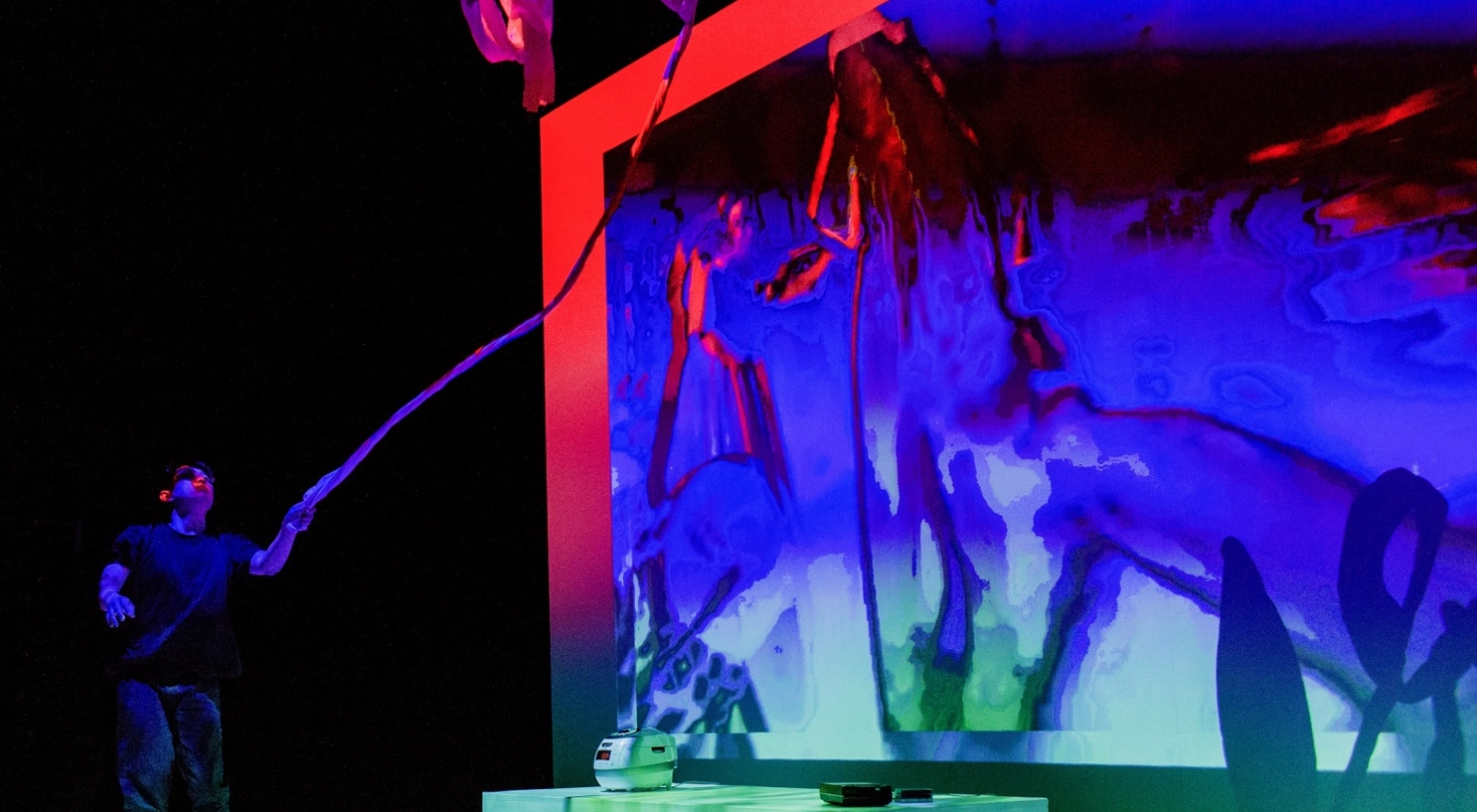
© Leontien Allemeersch
-
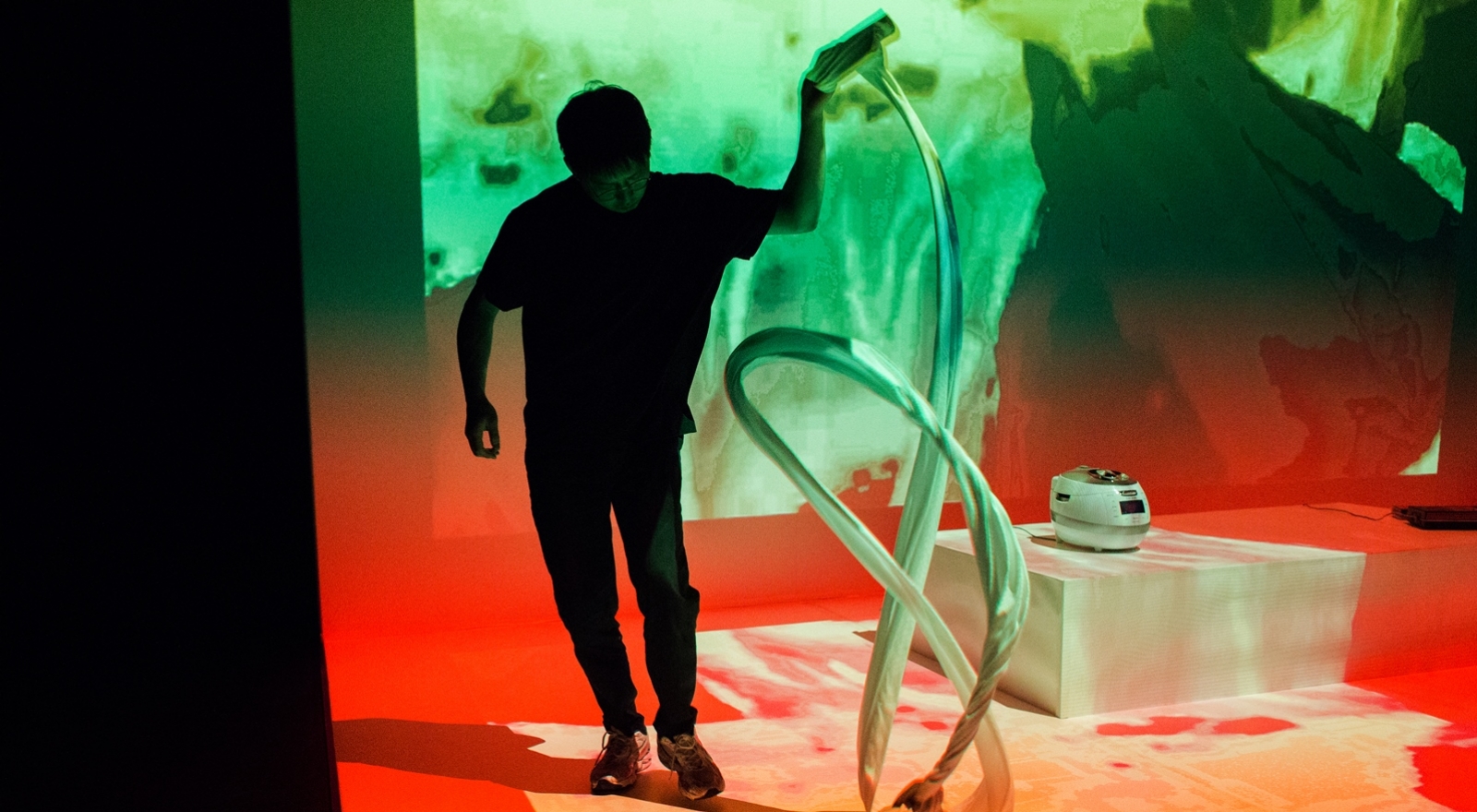
© Leontien Allemeersch
-
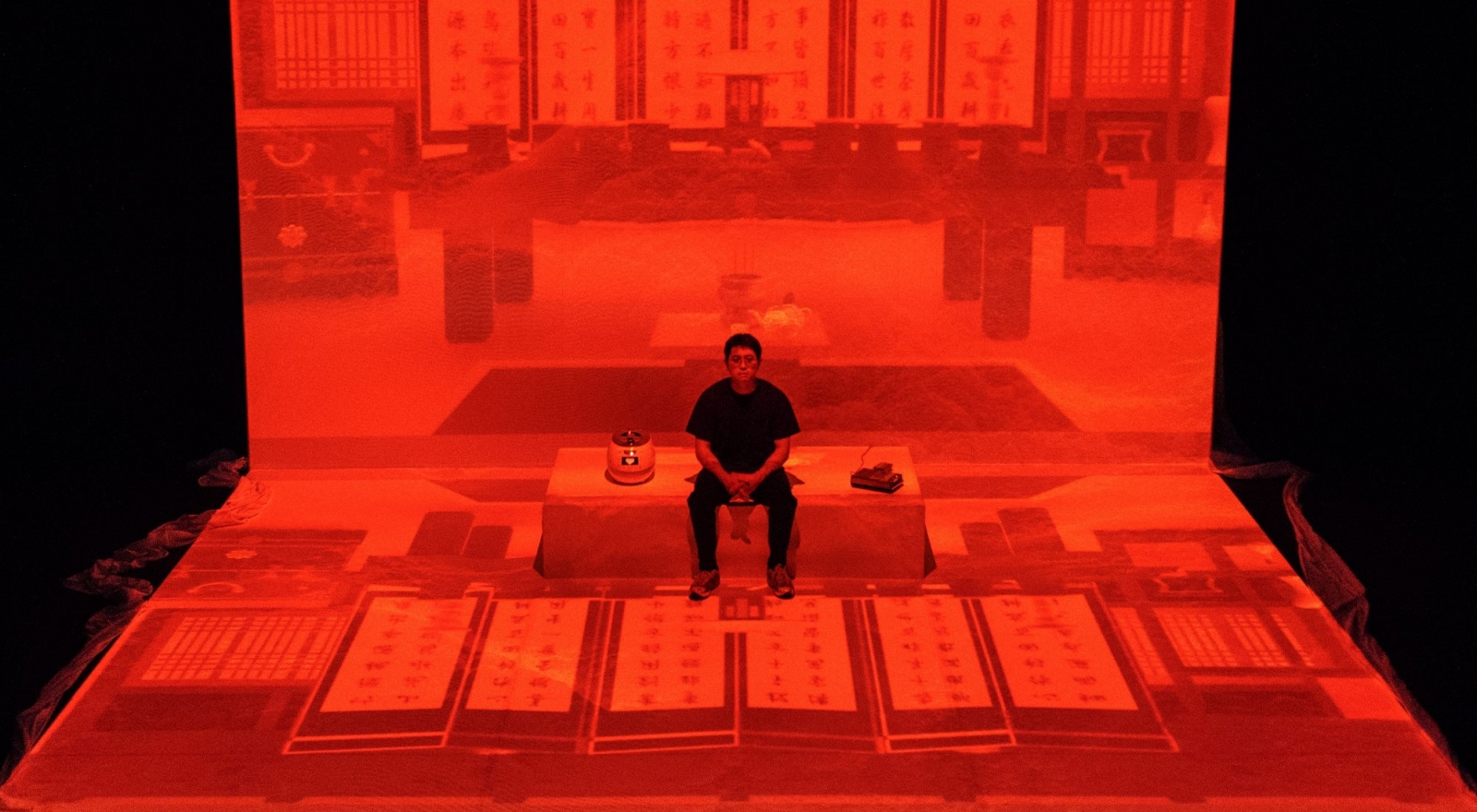
© Leontien Allemeersch
-
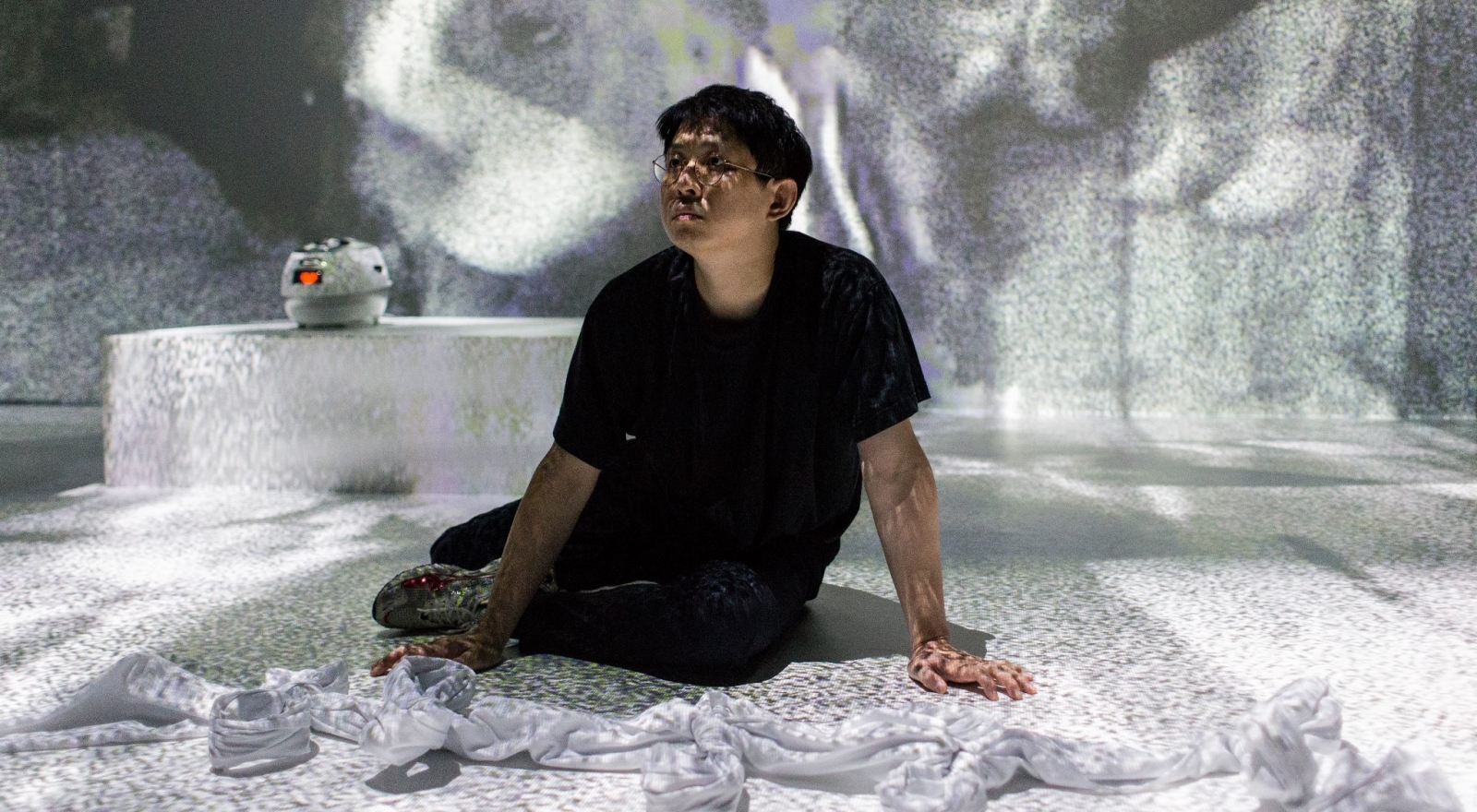
© Leontien Allemeersch
-
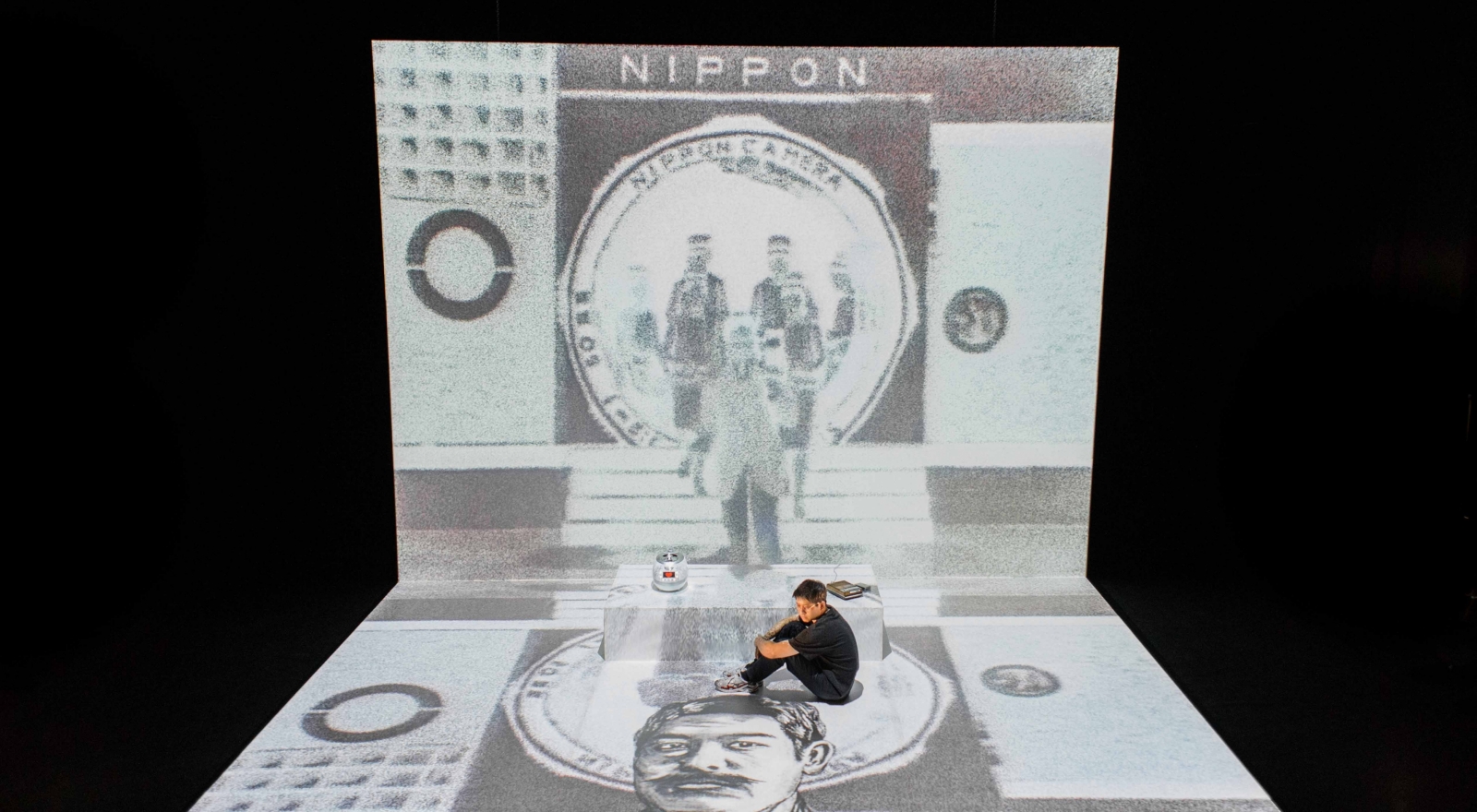
© Leontien Allemeersch
-

© Leontien Allemeersch
The History of Korean Western Theatre
Jaha Koo / CAMPO
Celebrating the centenary of Korean theatre in 2008, the South Korean theatre maker / composer Jaha Koo realized that there is actually no space for Korean theatre tradition: what is regarded as Korean theatre is largely determined by the Western canon. But why are the South Koreans so proud of this Western interpretation? And why does everyone keep referring to Shakespeare? It raises questions about tradition, self-censorship and authenticity.
In this final piece of his Hamartia Trilogy, Jaha Koo resolutely focuses on the future. Meticulously, he exposes the tragic impact of the past on our lives, unveiling the small cracks in modern Confucianism - an ideology that continues to define the moral system, way of life and social relations between generations in South Korea. With a new generation of South Koreans in mind, he attempts to break with a tradition full of self-censorship and keeping up appearances. Because only when based on an authentic version of history, he can pass on a future to the next generation.
In Korean, with English and Dutch subtitles
Duration: 60 minutes
The Hamartia Trilogy
The History of Korean Western Theatre forms the last part of Jaha Koo's Hamartia Trilogy. Together with Lolling and Rolling and Cuckoo, the trilogy consists of three intelligent documentary theatre performances, each telling a story about 'hamartia', Greek for 'tragic error'. The common thread here is the far-reaching imperialism of the past and present, and its sometimes unexpected personal impact. Each time, Jaha Koo interweaves his personal stories with historical, political and sociological facts. Often themes that involve a clash of Eastern and Western culture: from the clipping of tongues to make it in the West, to the heavy personal toll of Western interference in the macroeconomic sphere.
press
With an amazing talent Jaha Koo bridges the richness of Eastern cultural traditions with the use of technology and contemporary art to anchor us in the present. To make us reflect on our collective future.
Coming from a corner of the world caught between frightening totalitarianism and savage capitalism, Jaha Koo's reflections are patently relevant.
Jaha Koo's unique style moves, invigorates and, most importantly, makes you think.
While I learnt a great deal from the show, it is anything but blandly educational, thanks to its freewheeling blend of autobiography and history, and pop and folk culture.
Il fait une démonstration magistrale de la capacité du théâtre contemporain à jouer de tous les langages, – textuels, sonores et visuels – pour circonscrire un impossible : donner à sentir le poids du silence.
Modernised magic, absurd seriousness, moving science – The History of Korean Western Theatre is founded on all these contrasts. This is the paradoxical theatre idiom that makes Jaha Koo an utterly unique artist.
credits
concept, text, direction, music & video Jaha Koo performance Jaha Koo, Seri & Toad dramaturgy Dries Douibi scenography & drawing Eunkyung Jeong artistic advisor Pol Heyvaert technical Korneel Coessens, Jan Berckmans, Bart Huybrechts, Koen Goossens (& Jonas Castelijns) hardware hacking Idella Craddock research Eunkyung Jeong & Jaha Koo research assistance Sang Ok Kim interview Jooyoung Koh, Kiran Kim & Kyungmi Lee production CAMPO co-produced by Kunstenfestivaldesarts (Brussels), Münchner Kammerspiele, Frascati Producties (Amsterdam), Veem House for Performance (Amsterdam), SPRING performing arts festival (Utrecht), Zürcher Theaterspektakel, Black Box teater (Oslo), International Summer Festival Kampnagel (Hamburg), Tanzquartier Wien, wpZimmer (Antwerp), Théâtre de la Bastille (Paris) & Festival d’Automne à Paris residencies Kunstencentrum BUDA (Kortrijk), wpZimmer (Antwerp), Decoratelier Jozef Wouters (Brussels), Doosan Art Center (Seoul) with the support of Beursschouwburg, Vlaamse Gemeenschapscommissie & Amsterdams Fonds voor de Kunst
CAMPO is supported by the city of Ghent and the Flemish Community.
